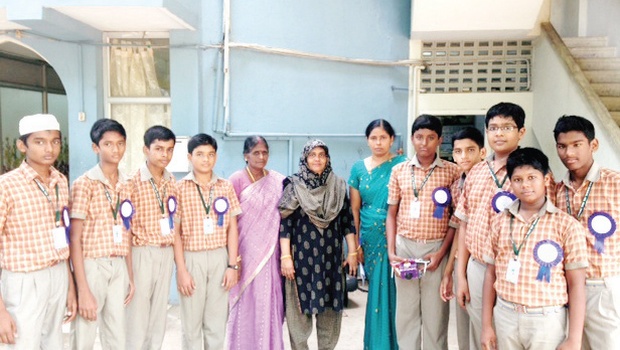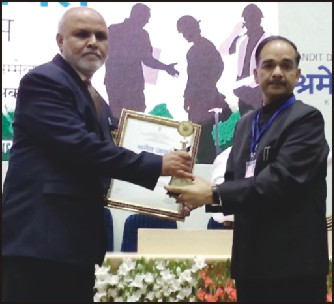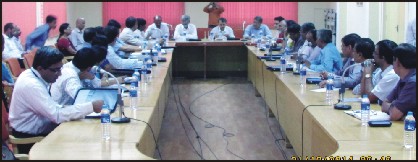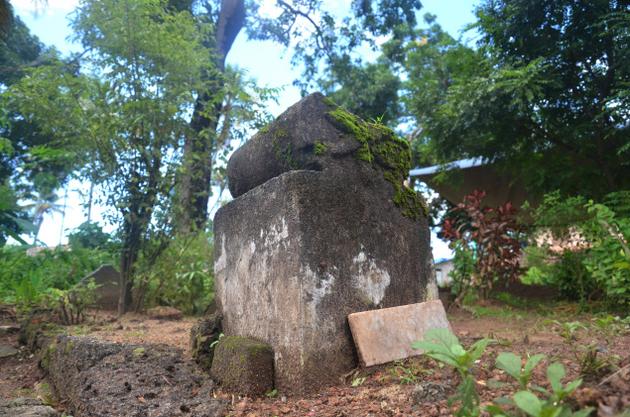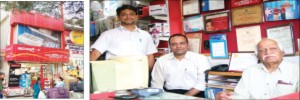Dr.Najma Heptulla, Union Minister for Minority Affairs unveiled and garlanded portrait of Maulana Abul Kalam Azad here today on the eve of his 125th Birth Anniversary. The Minister also unveiled the Foundation Stone for launching of activities of Maulana Azad National Skills Academy (MANAS) set up by National Minorities Development and Finance Corporation (NMDFC) under the aegis of Ministry of Minority Affairs.
The office of MANAS was also inaugurated by the Minister located at Maulana Azad Bhawan, Opposite New Delhi Railway Station Reservation Counter, Chelmsford Road, New Delhi. The office space has been leased out by Maulana Azad Education Foundation (MAEF). To begin with, MANAS will operate from 4 rooms and first Floor premises in the Maulana Azad Bhawan. The open space in front of the building is also planned to be utilised for construction of training facility for MANAS.
Delivering the inaugural address, Dr Najma Heptulla, who also happens to be Grand Niece of Maulana Abul Kalam Azad informed about the life and time of Maulana Saheb. She described him as a towering figure on the Indian political scene and a scholar rated high in the realms of Urdu Literature. He was a dogged freedom fighter and an un-failing upholder of secular and democratic values, she said.
She also highlighted his contributions in shaping the Education System of the country as First Education Minister of Independent India. He gave lot of thrust to Adult literacy, Universal primary education — free and compulsory for all children, girls education, diversification of secondary education and vocational training.
The Minister specially appreciated the commendable efforts by MANAS and NMDFC to completely renovate the Maulana Azad Bhawan in record time of one week. With the efforts of MANAS, the entire building in neglected condition so far has been repaired, painted, polished, open space levelled/cleaned and brought to its present shape for use as office and training centre.
source: http://www.business-standard.com / Business Standard / Home> Government Press Release> News / AT / Delhi – November 10th, 2014

